4-Aminoantipyrine

4-Aminoantipyrine structure
|
Common Name | 4-Aminoantipyrine | ||
|---|---|---|---|---|
| CAS Number | 83-07-8 | Molecular Weight | 203.240 | |
| Density | 1.2±0.1 g/cm3 | Boiling Point | 309.0±45.0 °C at 760 mmHg | |
| Molecular Formula | C11H13N3O | Melting Point | 105-110 °C(lit.) | |
| MSDS | Chinese USA | Flash Point | 140.7±28.7 °C | |
| Symbol |

GHS07 |
Signal Word | Warning | |
Use of 4-AminoantipyrineAmpyrone is a reagent for glucose determination in the presence of peroxidase and phenol. |
| Name | 4-aminoantipyrine |
|---|---|
| Synonym | More Synonyms |
| Description | Ampyrone is a reagent for glucose determination in the presence of peroxidase and phenol. |
|---|---|
| Related Catalog | |
| Target |
COX |
| References |
| Density | 1.2±0.1 g/cm3 |
|---|---|
| Boiling Point | 309.0±45.0 °C at 760 mmHg |
| Melting Point | 105-110 °C(lit.) |
| Molecular Formula | C11H13N3O |
| Molecular Weight | 203.240 |
| Flash Point | 140.7±28.7 °C |
| Exact Mass | 203.105865 |
| PSA | 52.95000 |
| LogP | -0.40 |
| Vapour Pressure | 0.0±0.7 mmHg at 25°C |
| Index of Refraction | 1.607 |
| InChIKey | RLFWWDJHLFCNIJ-UHFFFAOYSA-N |
| SMILES | Cc1c(N)c(=O)n(-c2ccccc2)n1C |
| Storage condition | Store at RT. |
| Stability | Stable. May be light sensitive. |
| Water Solubility | ca. 500 g/L (20 ºC) |
CHEMICAL IDENTIFICATION
HEALTH HAZARD DATAACUTE TOXICITY DATA
MUTATION DATA
|
| Symbol |

GHS07 |
|---|---|
| Signal Word | Warning |
| Hazard Statements | H302 |
| Precautionary Statements | P301 + P312 + P330 |
| Personal Protective Equipment | dust mask type N95 (US);Eyeshields;Gloves |
| Hazard Codes | Xn:Harmful |
| Risk Phrases | R22;R36/37/38 |
| Safety Phrases | S26-S36-S36/37/39 |
| RIDADR | NONH for all modes of transport |
| WGK Germany | 3 |
| RTECS | CD2480000 |
| HS Code | 29331190 |
| Precursor 9 | |
|---|---|
| DownStream 10 | |
| HS Code | 2933199090 |
|---|---|
| Summary | 2933199090. other compounds containing an unfused pyrazole ring (whether or not hydrogenated) in the structure. VAT:17.0%. Tax rebate rate:13.0%. . MFN tariff:6.5%. General tariff:20.0% |
|
Salt-inducible Kinase 3 Signaling Is Important for the Gluconeogenic Programs in Mouse Hepatocytes.
J. Biol. Chem. 290 , 17879-93, (2015) Salt-inducible kinases (SIKs), members of the 5'-AMP-activated protein kinase (AMPK) family, are proposed to be important suppressors of gluconeogenic programs in the liver via the phosphorylation-dep... |
|
|
Cholesterol oxidase with high catalytic activity from Pseudomonas aeruginosa: Screening, molecular genetic analysis, expression and characterization.
J. Biosci. Bioeng. 120 , 24-30, (2015) An extracellular cholesterol oxidase producer, Pseudomonas aeruginosa strain PA157, was isolated by a screening method to detect 6β-hydroperoxycholest-4-en-3-one-forming cholesterol oxidase. On the ba... |
|
|
One-touch-activated blood multidiagnostic system using a minimally invasive hollow microneedle integrated with a paper-based sensor.
Lab Chip 15 , 3286-92, (2015) The development of real-time innocuous blood diagnosis has been a long-standing goal in healthcare; an improved, miniature, all-in-one point-of-care testing (POCT) system with low cost and simplified ... |
| 4-amino-1,5-dimethyl-2-phenylpyrazol-3-one |
| EINECS 201-452-3 |
| 4-Aminoantipyrine |
| MFCD00003145 |
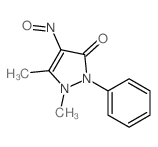 CAS#:885-11-0
CAS#:885-11-0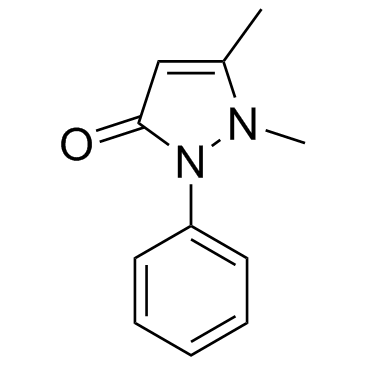 CAS#:60-80-0
CAS#:60-80-0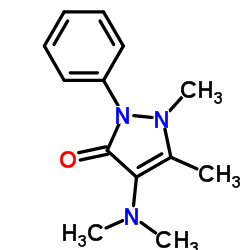 CAS#:58-15-1
CAS#:58-15-1![4-[(2,2,2-Trichlor-1,1-dimethylethoxycarbonyl)amino]antipyrin Structure](https://image.chemsrc.com/caspic/115/135182-38-6.png) CAS#:135182-38-6
CAS#:135182-38-6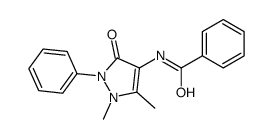 CAS#:5702-68-1
CAS#:5702-68-1 CAS#:68-89-3
CAS#:68-89-3 CAS#:7647-01-0
CAS#:7647-01-0 CAS#:7664-93-9
CAS#:7664-93-9 CAS#:1759-26-8
CAS#:1759-26-8 CAS#:3608-86-4
CAS#:3608-86-4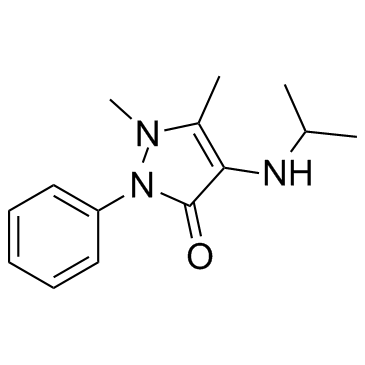 CAS#:3615-24-5
CAS#:3615-24-5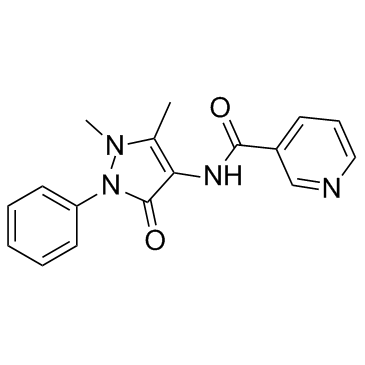 CAS#:2139-47-1
CAS#:2139-47-1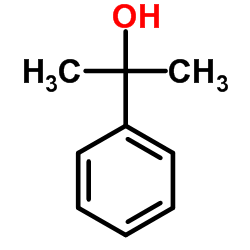 CAS#:617-94-7
CAS#:617-94-7 CAS#:26084-35-5
CAS#:26084-35-5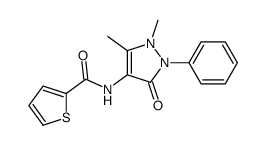 CAS#:26690-91-5
CAS#:26690-91-5 CAS#:83-15-8
CAS#:83-15-8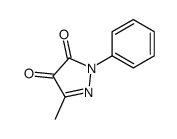 CAS#:881-05-0
CAS#:881-05-0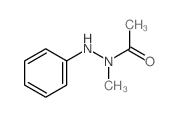 CAS#:38604-70-5
CAS#:38604-70-5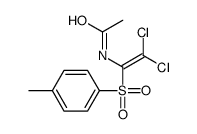 CAS#:5142-72-3
CAS#:5142-72-3
